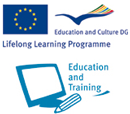Project and Partners
Helsinki 11.6.2010
Project
Teach and learn Hungarian (Te-Le-Hu)
The aim of the partnership was competence building of teachers of Hungarian working mainly in liberal adult educational institutions.
EU Programme
Lifelong Learning Programme / Grundtvig / Learning partnership
Duration
1.8.2008 – 31.7.2010
Partners and contact persons
- Balassi Institute, Hungarian Language Department (Balassi Intézet: Nádor Orsolya) Budapest, HU
- Estonian Hungarian Society (Eesti Ungari Selts: Kadi Raudalainen) Tallinn, EE
- University of Hamburg (Institut für Finnougristik/Uralistik der Universität Hamburg, Fazekas Tiborc) Hamburg, DE
- Finnish-Hungarian Society, (Suomi-Unkari Seura, Marjatta Manni-Hämäläinen, coordinator, and group of teachers: Kaija Markus/City of Vantaa, Education Department; Ildikó Vecsernyés/University of Helsinki, Department of Finnish, Finno-Ugrian and Scandinavian Studies; Irene Wichmann/University of Helsinki, Palmenia) Helsinki, FI
Associated partners:
- Baden-Württemberg Volkhochschulverband, DE
- Miniszterelnöki Hivatal Nemzetpolitikáért és Kisebbségekért Felelős Szakállamtitkársága, HU
Other partners / Cooperation:
In Finland there was close cooperation between teachers of Hungarian, Finnish adult education centers and University of Helsinki department of Hungarian Studies.
Background
The project follows the Survival.hu-project (EU/Sokrates/Lingua2), which in 2002-2005 produced e.g. study materials Unkaria helposti (’Hungarian easily’) and arranged a few teachers´ seminars. Its foundations were also partly set in the Autumn 2007 seminar of the Finnish teachers of Hungarian, where further education and communication were hoped for.
Teachers of ´minor language´ Hungarian work mostly on their own in different parts of Finland. Their educational backgrounds are highly heterogeneous, and many of them lack formal qualifications for language teaching or pedagocigal background and thus do not have the support of a professional community. Potential partners were also found to be increasingly interested in non-university teaching.
Aims, tools, products
Sharing of good practices – creating new contacts – establishing a supporting network of colleagues – working out a common curriculum for all participating countries, based on the Common European Framework of Reference for Language Learning, Teaching, Assessment – creating an evaluation criteria – testing new materials and methods – organizing a one-day didactic seminar in Finland – realisation of a one-week training course for teachers of Hungarian – preparing a teachers’ handbook – providing the participants of the training course with a certificate – creating a European network for teachers of Hungarian – creating a website – promoting cultural competence of the teachers – partner meetings – working together with teachers and their learners.
Future
Webmaterials and network of teachers will be maintained as far as possible. Partners are also willing to continue and broaden the cooperation within a new project.
Acknowledgements
The project would like to thank the national offices of the Lifelong Learning Programme for good information services.
- Estonia: http://www.hkk.ee/
- Finland: http://www.cimo.fi/
- Germany: http://www.na-bibb.de/
- Hungary: http://www.tpf.hu/
- Other countries see: http://ec.europa.eu/education/lifelong-learning-programme/
Lifelong Learning Programme
The European Union’s Lifelong Learning Programme (LLP 2007-2013) comprises four sectoral programmes: Comenius (school education), Erasmus (higher education), Leonardo da Vinci (vocational training) and Grundtvig (adult education). It also includes a transversal programme supporting, for example, study visits of education experts, learning of languages and development of information and communication technologies. Finally, the Jean Monnet programme supports activities relating to European integration. The Centre for International Mobility CIMO is the national agency for the Lifelong Learning Programme in Finland.
This publication has been funded by the European Commission. The Commission accepts no responsibility for the contents of the publication.

